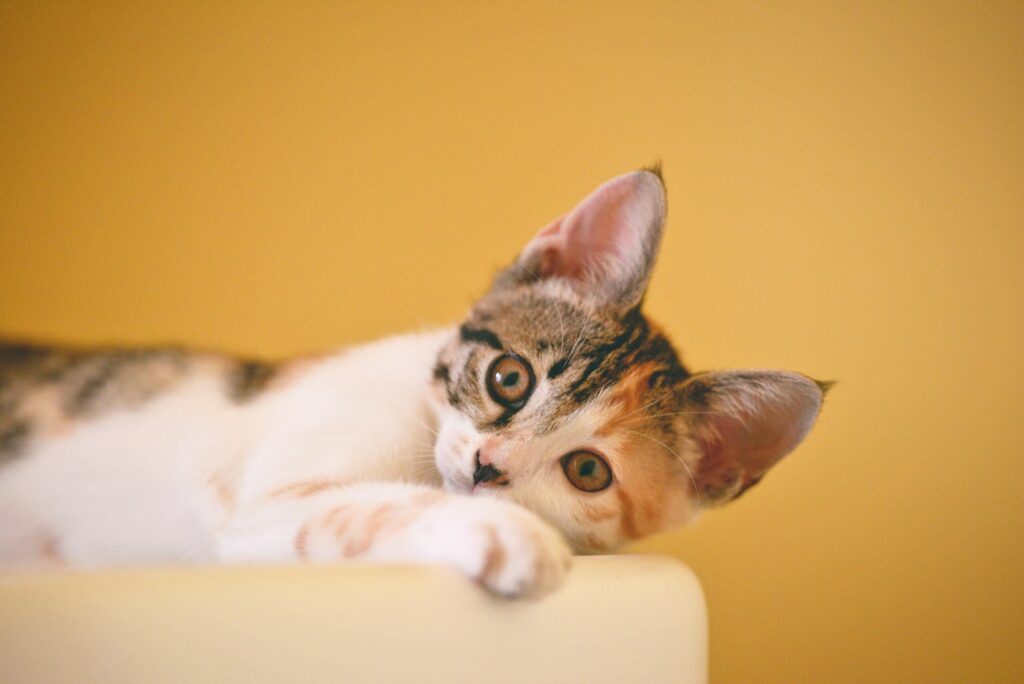Can Cats Eat Moths? — No, They Can’t
Cats are curious creatures, known for their playful nature and hunting instincts. It’s not uncommon for cats to be attracted to flying insects, such as moths. However, it is important to understand that cats should not be allowed to consume moths. While moths may seem harmless, they can pose various risks to a cat’s health.
Is It Safe for Kittens to Consume Moths?
Just like adult cats, it is not safe for kittens to consume moths either. Kittens have delicate digestive systems that may not be able to tolerate the ingestion of insects like moths. It is best to prevent kittens from interacting with moths to avoid any potential health issues.
Risks Associated with Feeding Moths to Kittens
Feeding moths to kittens can lead to several risks and health problems:
- Ingestion of Harmful Substances: Moths may come into contact with various harmful substances, such as pesticides or toxic plants. If a kitten consumes a moth that has been exposed to these substances, it can result in poisoning or other adverse reactions.
- Digestive Issues: The wings and bodies of moths can be difficult for kittens to digest, leading to gastrointestinal problems like obstruction or upset stomach.
- Parasitic Infections: Moths can carry parasites, such as fleas or mites. If a kitten consumes a moth infested with parasites, it may lead to flea or mite infestations, causing discomfort and potentially transmitting diseases.
Why Moths are Not Recommended for Cats
Potential Choking Hazard
Moths have small, delicate wings that can detach easily. If a cat tries to consume a moth, there is a risk of the wings getting lodged in the cat’s throat, causing choking or gagging. This can be a life-threatening situation and requires immediate veterinary attention.
Limited Nutritional Value
Moths hold limited nutritional value for cats. While they may contain some protein, it is not sufficient to fulfill a cat’s dietary requirements. A balanced, commercially formulated cat food provides all the necessary nutrients for a cat’s overall health and well-being.
Potential Intestinal Obstruction
The bodies of moths can be difficult for cats to digest properly. Ingesting moths, especially in large quantities, may lead to a blockage in the gastrointestinal tract, causing discomfort, pain, or more severe complications that require medical intervention.
Known Health Issues in Cats from Consuming Moths
Consuming moths can result in various health issues for cats, including:
- Upset stomach or diarrhea
- Vomiting
- Gastrointestinal blockage
- Possible exposure to harmful substances or parasites carried by moths
What to Do If a Cat Has Consumed Moths?
- Monitor the Cat: If a cat has consumed moths, keep a close eye on their behavior and monitor any potential digestive issues. Look for symptoms like vomiting, diarrhea, or abdominal discomfort.
- Seek Veterinary Advice: If you notice any concerning symptoms or if your cat has consumed a large quantity of moths, it is advisable to consult a veterinarian. They can provide proper guidance and suggest necessary steps to ensure your cat’s well-being.
- Prevent Future Encounters: Take measures to prevent your cat’s access to moths by utilizing screens on windows or keeping them indoors. This helps minimize the risk of ingestion and potential health complications.
Safe Alternatives to Moths for Cats
If your cat shows an interest in hunting or playing with flying insects like moths, it is important to provide safe alternatives. Some suitable alternatives include interactive toys, such as wand toys or laser pointers, that mimic the movement of insects. This way, your cat can engage in playful hunting behavior without the associated risks.
Conclusion
In conclusion, it is not safe for cats, including kittens, to consume moths. Moths can pose various risks to a cat’s health, including potential choking hazards, limited nutritional value, and the possibility of gastrointestinal blockage. It is crucial to prioritize a cat’s safety and well-being by preventing their access to moths and providing suitable alternatives for them to engage in their natural hunting instincts. If you suspect your cat has consumed moths or exhibits any concerning symptoms, consult a veterinarian for proper guidance and care.






